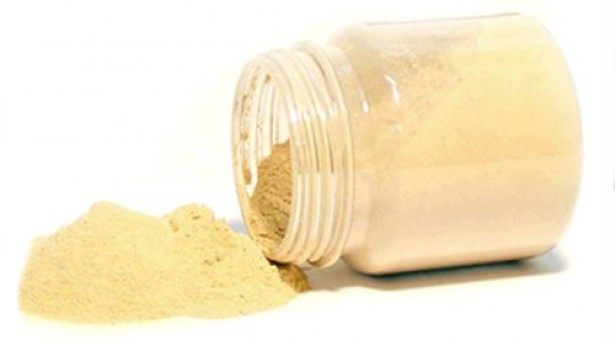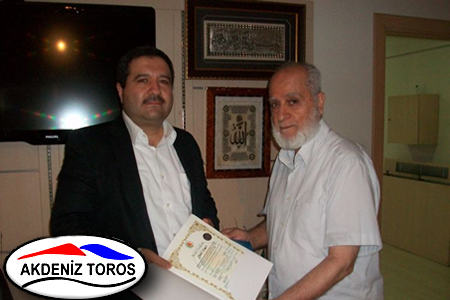“In which products can we find protein and swine additives? Animal feed, meat, chicken, pepperoni, salami, sausage, bacon, shawerma, yogurt, spices, protein drinks, coffee (collagen), cosmetics, medicines, vitamins, soaps, ointments, creams, botox, make-up, porcelain and many more.”
“This product is exported to 40 countries; this company only produces protein obtained from pig skin and, unfortunately, one of these countries is none other than our own, Turkey.”
We bring to your attention this article containing important information, written by our associate, Ayse Özkan, in Denmark:
During 2009, in Denmark, I had once come across a consumer’s program regarding the Halal certified chicken, which was demonstrating the injection procedures of the slaughtered chicken in another facility, and was fairly surprised. According to the program, the brisket meats are carefully lined up in a moving band with a mechanical syringe injecting a semi-liquid and sort of blurry substance into them, one by one. The small brisket meats now come out after the injection, but are now much larger. The program did not exactly explain the contents of this substance, but the host clearly stated that the method employed could be the injection of swine proteins into the said meat products.
After the program, the host received strong reactions from various poultry companies. Denmark’s press and media immediately covered up this issue that year, and the media and the press announced that the chicken did not contain any swine products. They also stated that the 10% content of Neutralmarinert, or more commonly knows as lage, is actually water, salt and sugar.
The appearance of this program in the press also caused certain reactions by many Arab countries. Consequently, Saudi Arabia and Middle Eastern countries stopped any imports from Denmark, leading to the destruction of tonnes of chicken meat. Denmark faced a lot of financial damage due to this, and many poultry companies were at a loss, some even going bankrupt. This situation also affected the butter, milk, cheese, and yogurt producing company, Arlan, due to its vast exports to Saudi Arabia and middle eastern countries. As a result, Arlan has faced a huge financial loss that year.
Denmark has commenced the production of vitamin D containing milk since 2011, some of which contain swine additives and some do not. Scandinavian countries generally produce vitamin D containing milk due to the lack of sun exposure. It was reported that two people had died due to lack of vitamin D in Denmark.
Aside from Denmark, the injection procedures used in chicken, beef and various meat products are applied in many parts of the world. This method greatly reduces production costs. Once the meat products are injected with the protein, they are later sold as shawerma, kababs, sausages, pepperoni, and bacon. Analysis is required to identify the kind of protein being injected into chicken and beef. Following the slaughtering process, most meat products are passed through these injection procedures.
Muslim businessmen, butchers, and consumers, must ensure that the meat products are not exposed to such injection processes. As the cost of this process is very low, it is applied to most meat products. For example, when swine or other animal-based protein is injected into five kilograms of beef, the weight after injection increases to 8-10 kilograms.
This method is widely applied in Europe. Scanflavour firm produces only swine protein and exports it to many countries in the world. Swine protein is being exported to foreign and domestic markets, as well as numerous parts of the world under different names and codes. The company producing swine protein forms an important source of income for Denmark. The company only produces protein obtained from pig skin, and this product is exported to 40 countries, among which, unfortunately, is Turkey.
BHJ A / AS is Denmark’s second largest protein company, the majority of, which are obtained from pigs, and some others obtained from cattle, chicken, turkey, sheep and other animals. Similarly, this company exports to 60 countries, again, unfortunately, including Turkey. Although the company officials have clearly stated that their products are not Halal, beef protein produced by this firm is still being exported as a Halal product to manufacturers of shawerma, kabab, pepperoni, bacon, burgers, sausages, and salami.
Although its Halal status is unknown, residues of beef collected from various slaughterhouses are being transported to this company to be converted to proteins. The company has started its cattle skin protein production this year in Germany. Halal certified product exports are being planned since the beginning of 2012. Moreover, this firm produces sausage and salami that carry a Halal logo and a flag similar to that of the Turkish flag, and is, sadly, being consumed mostly by our Muslims.
Tonnes of meat is being imported to Turkey from many Foreign States, so who can guarantee that these imported products have not undergone the swine protein process? Has any swine DNA analysis been carried out on these imported products? If so, then who is monitoring this analysis and how? Who can guarantee to the consumers that these meat products are Halal? Where does Turkey make use of the tonnes of gelatine that is being imported from Denmark, which just produces pig gelatine? Denmark only produces 100% pig gelatine due to its low cost of production. Does Turkey, being mainly populated by Muslims, show the required amount of sensitivity in this matter?
The soft candy, being produced in Turkey, is not any different in terms of texture from those that are being produced, from pig gelatine, in Europe. The candy manufactured from beef gelatine is much different in texture and has a matte appearance. These soft candies are being produced from gelatine, so has any pig DNA analysis been carried out on them? Candies produced from pig gelatine are much different in texture than those being produced from beef gelatine. The texture of those produced from pig gelatine are more elastic, soft and has a shiny surface. People generally think that gelatine is converted to another substance during the production process; however, this is not true. We, as Muslim consumers, must aim to be more careful, conscious and sensitive.
May God help and guide us.





